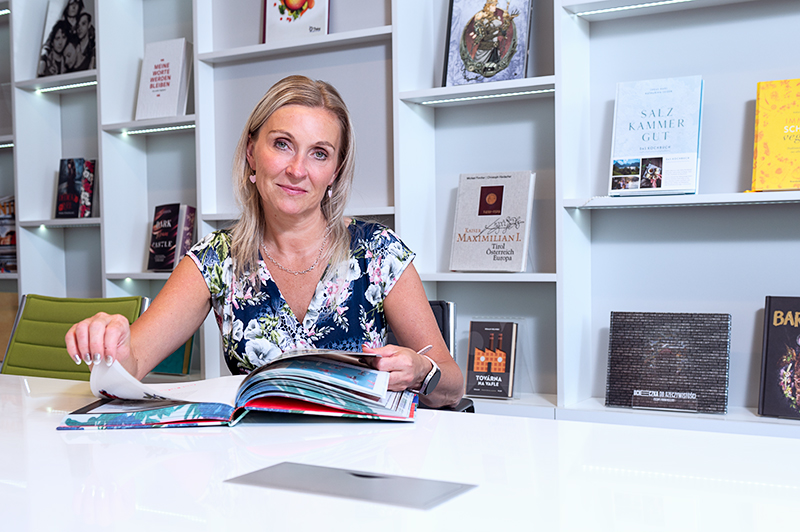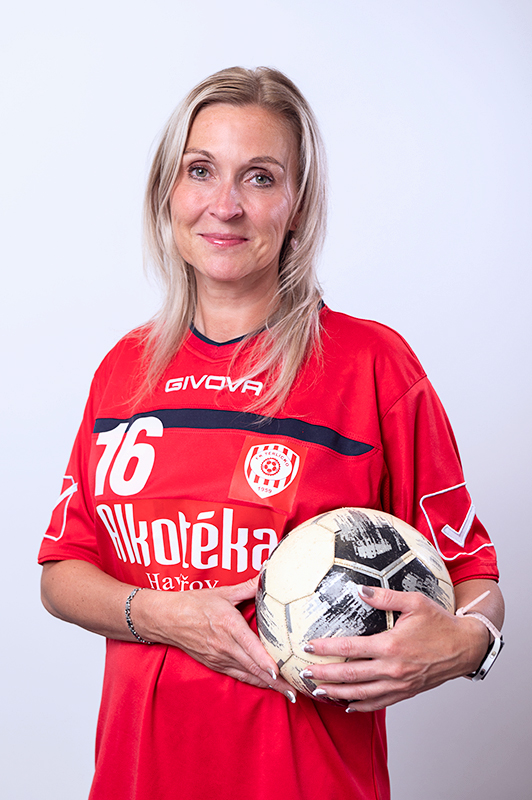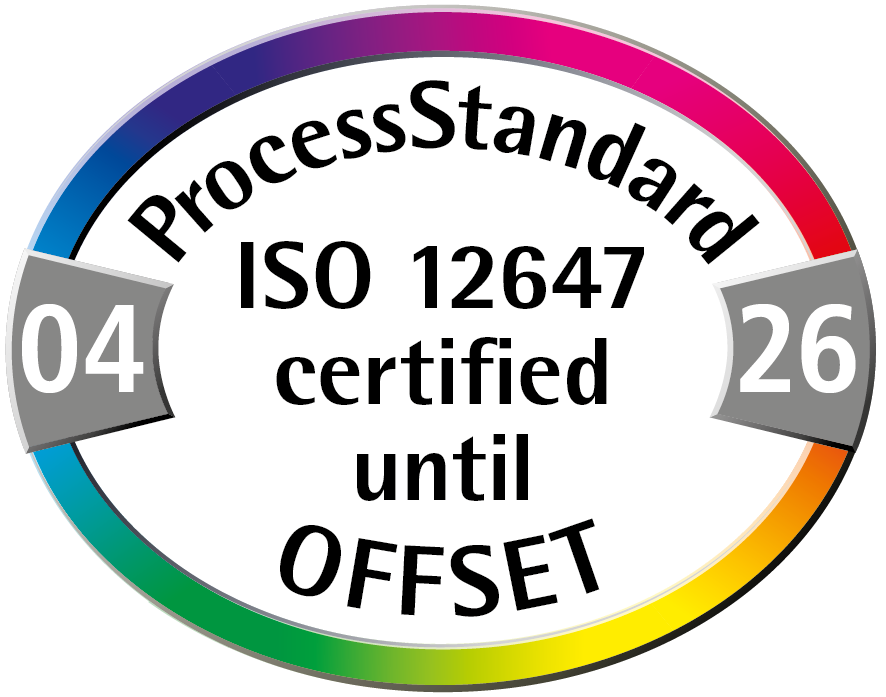Interview text: Maryla Adamčíková, Marcela Popelková | Photo: Lukáš Duspiva
During her two and a half years at FINIDR, Ms. Marcela Popelková has worked her way up from quality specialist to head of output control. Among the other things, she has also successfully passed the FINIDR Academy internal lecturer examination. And what does her normal working day look like? What routines and also specialties do she have to encounter with? And what is she planning for the summer? Find it out in today’s interview.

Marci, how did your paths cross with FINIDR?
FINIDR was looking for a quality manager and I was working as a quality coordinator at another company at the time, so I thought, why not. Moreover, I studied quality management at the University of Economics in Ostrava, Bachelor’s degree. But I also thought, “Books and quality? Is there quality level too?” I thought it is only about machine settings. I couldn’t imagine it.
What brought you to study?
My colleagues encouraged me, and I said, “Okay.” Before I went to school, I was in purchasing and sales department at the company. I originally wanted to go study economics, but my colleague told me that everybody has economics education nowadays, so I thought I could study quality management.
How long have you been involved in production quality control?
It is ten years now.
What kinds of production have you had the opportunity to get to know?
Everything was engineering, except here it was a completely different field for me. For example, I had the opportunity to be at the construction of a power plant in Turkey, where I was mainly in charge of the administrative work. We dealed with production takeovers, which was done by our subcontractors. They were supplying us with components, piping and everything related to the power plant. During the takeovers in Germany, we were responsible also for quality of the welds on the pipes as well as for the whole documentation.
I think it’s very technical. Is it even interesting for a woman to check the welds?
When you get into it, it’s interesting. I have some engineering basics from school. It was normal for me to work with a helmet on my head, and especially in a male team. Working with smart guys gave me a lot of experience.
Please compare the quality area for pipelines and books.
Our quality is clean. In the automotive industry, it’s tough, customers want to describe causes and corrective actions in great detail. Piping can’t have defects, high-pressure piping – must be perfect. I just didn’t see the defects on books before; first after I joined FINIDR I start to see something “shining” on my son’s textbook, for example. On the other hand, book is a visual thing, and its quality does not endanger human life, it is more aesthetic matter. A book must be beautiful. The tube doesn’t have to be beautiful, but it must meet the safety requirements.
Tell us more about what a quality specialist is responsible for.
As a Quality Specialist, I was responsible for external complaints, evaluating internal and external claims, detecting the most frequent faults, supervising changes on a given process and that all in collaboration with process engineers. It was also about passing information to people in production, preparing analysis and evaluations for management.
You went from Quality Specialist to Head of Output Control, what are the differences in this position?
I still do the same work, but I am also responsible for people in both FINIDR A and B. The quality managers are in charge of the inter-operational control. Before the book is produced, the checkers provide shipping signals, i.e. they check the samples which are sent to the customer. There is a larger number of pieces from a single selected order than at the exit control, e.g. for a signing, exhibition, presentation, etc. At exit control, girls have 90% signals from almost every order. They send signals up to a maximum of 15 pieces. These samples go directly to the customer’s desk for review. This is all before the whole bulk is shipped to the client.
Do you also go to FINIDR “B” to check the quality?
Yes, if there is a problem, but mainly I go there to see my colleague from quality and to see my colleagues from the Binding Dpt, so that we can keep in touch with each other and maintain good relations. For example, we are now dealing with the space for another archive of sample books or the transportation of signals from A to B.
Marci, can you share some interesting, special features, so-called “hard-nuts” in the quality of the books?
There’s always something, but we work it out with the engineers or with the sales department. Our colleagues from sales always thank us for saving something. We’re glad for that. To hear someone praise us is very heart-warming.
Girls check 15,000 books a year each. About 150 books a day pass through their hands. They check every single book as well as the work in progress on the lines! The quality girls must go to the line, take samples, check them and alert the machine operator if necessary. They also pick samples for the owner, the business manager and for the sales department. Therefore, they’re also running a lot between machines and buildings.
What is it like to work with people? Have you had that experience in the past?
Yes, I have. People are different, sometimes also moods are different, everyone has their own problems, but I’m a believer in wanting them to treat me the way I treat them. The most important thing is communication, you have to ask people the questions, then they are more open and nicer. Being a female collective, we get along well together.
You are also our internal lecturer, what does this experience bring to you?
I train new employees and students as well. My topic is “Quality in Production”. At the beginning it was stressful for me, but because I’ve been here longer now and I’ve also passed the lecturer training, I’m not afraid that they would ask me a question that I won’t be able to answer. I’m nice to them and they’re nice to me. It’s about communication, I show them the defects they can come across in production. Then I meet these people in production, we greet each other from afar. It’s great.
What are your summer plans?
In June I’m going to Croatia with the whole football group because my son plays football. That came out of the blue. It was unplanned. Thirty-seven of us will be there, and we’re going by bus. We all know each other, which is good because we go to football matches together, and we’re all from Terlicko. The family holiday is planned in Egypt. I’m looking forward to it, because each of these holidays will be different. Then I’ll spend the summer at home in the garden by the pool. But it’s different on a holiday away from home, you really relax and in Egypt there is a guarantee of weather.
What are you into? Are you a sport family?
I like skiing. This year we were in the Tatras. We also go to the mountains, but it’s more for hiking. Cycling recreationally. We like sports in general. My son also plays hockey, so we spend weekends at matches with my son, it was difficult to combine trainings of both sports. I also like to sew. I have a new sewing machine. I got it when I was on covid. I thought I was going to make face masks.
When you’re a hockey family, are you fans of some hockey club?
We play for AZ club, so definitely AZ is the favourite one. And then, of course, Třinec. I’m not a fan of any specific hockey club, but my boys are big fans of Třinec team.
Finally, I would like to commend my colleagues for the work they are doing. I also wish everyone a nice summer and plenty of strength for the new season.

Marcela Popelková
Zodiac sign: Fish
What do I appreciate most by my co-workers? Honesty, mutual aid, positive thinking.
My greatest sporting achievement? Svinica, High Tatras, 2,301 m in summer sneakers
A chant I use to cheer on my son in sports...Let’s go, Těrlicko!
What was the longest time you spent at the sewing machine at once? 12 hours sewing gnomes for my colleagues for Christmas.
I’m looking forward to…vacation and when the kids are on holiday






